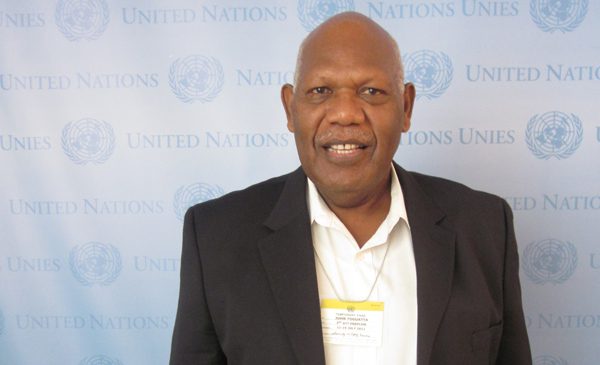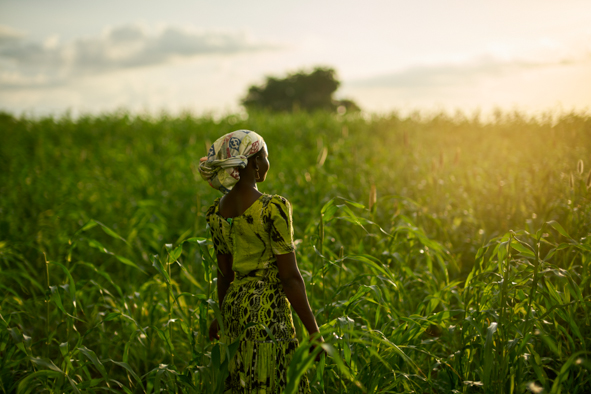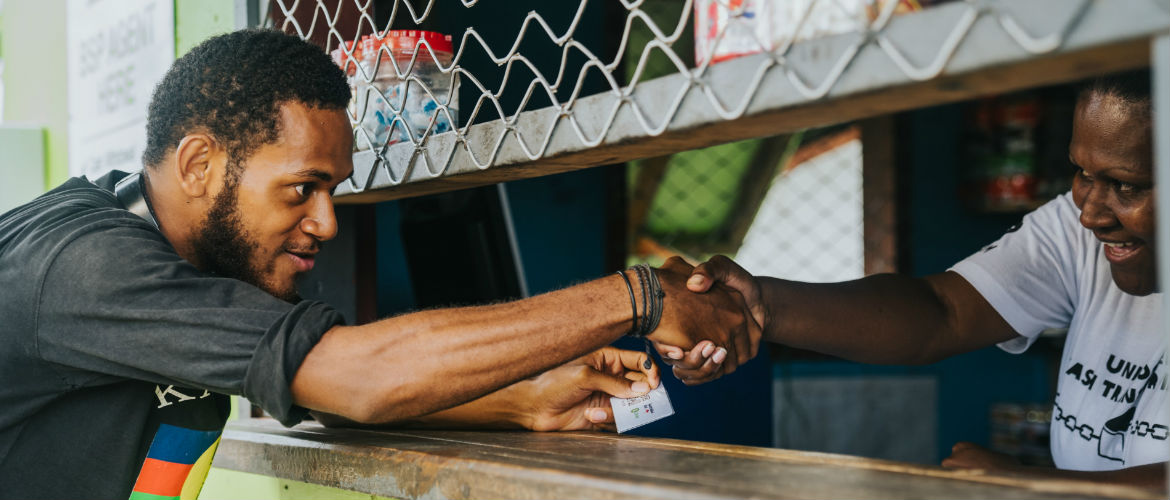This week two inspiring individuals from Pacific Islands are at the United Nations, working closely with representatives from their governments to ensure the strongest possible Arms Trade Treaty for the Pacific.
The Pacific hasn’t suffered from the ‘AK47 plague’ that some regions have, but a small number of arms in the region has been shown to have a disproportionate impact, reversing development efforts and disrupting local communities. In Papua New Guinea Oxfam has partnered with Kup Women for Peace, Young Ambassadors for Peace and Community Development Agency to create a peaceful society in the wake of conflict in the Highlands region. We also responded to the aftermath of the decade long civil war that ravaged the island of Bougainville in the 1990s.
Previously we’ve spoken to Ema Tagicakibau from Fiji, to give us her thoughts on progress so far. Today we asked John ToGuata from Papua New Guinea what a strong ATT means for him and why it is critical for our region.
Tell us about yourself.
I’m a former police officer from New Britain Island, Papua New Guinea. I spent over 28 years on the force and was a Police Commander during the 10 year long Bougainville crisis, which tragically transformed Bougainville from the richest province in PNG into one of its poorest. Following the war, I was heavily involved in disarmament efforts to remove weapons left over from the conflict from the community. I then worked as an officer in the Ombudsman Commission. I now work as an anti-corruption advisor in the PNG-Australia Law and Justice Partnership, which seeks to strengthen PNG’s police, courts and corrections.
Why does the problem of small arms and arms control matter to you? How did you get involved in the issue?
It matters so much to PNG because for many years now, we have had a very serious problem with the illicit proliferation of small arms and light weapons.
I got involved because in my past role as a police officer, I witnessed the evil that comes with the illicit use of guns. Later, in the mid 2000s, I became a member of the Guns Control Committee that produced a comprehensive range of recommendations to the PNG Government aimed at addressing the small arms problem in my country. However this report has not yet been fully addressed by the Government so we need to keep working on this issue until real change can be achieved.
What would an effective ATT mean for the Pacific region?
For an ATT to be truly effective in our region, it would need to make it far more difficult for small arms, light weapons and ammunition from getting into the hands of unauthorised users. Ammunition is particularly important within the ATT, as in my country continued irresponsible flows of ammunition make it easy for the same illicit guns to be used over and over again for years, to commit murders, armed robbery, sexual violence and kidnappings. Homemade guns, crafted to match the calibres of ammunition available in the community, are also a problem.
A strong ATT will also help protect the Pacific from being exploited by irresponsible arms dealers who might take advantage of weaker controls or gaps in capacity.
What role must the Pacific play?
The success of the ATT is critical to the security and development of Pacific states. Pacific states have an important role to play in joining all states to negotiate and effectively implement the ATT. Our voices of are the voices of communities who have been affected by armed violence and must be carefully heeded by the international community.


 Doris*, daughter, 5; Pamila*, 2. Christina grows maize and she was shown how to make compost as part of the CRAFS (Climate Resilient Agriculture and Food Systems) programme.
Doris*, daughter, 5; Pamila*, 2. Christina grows maize and she was shown how to make compost as part of the CRAFS (Climate Resilient Agriculture and Food Systems) programme.
